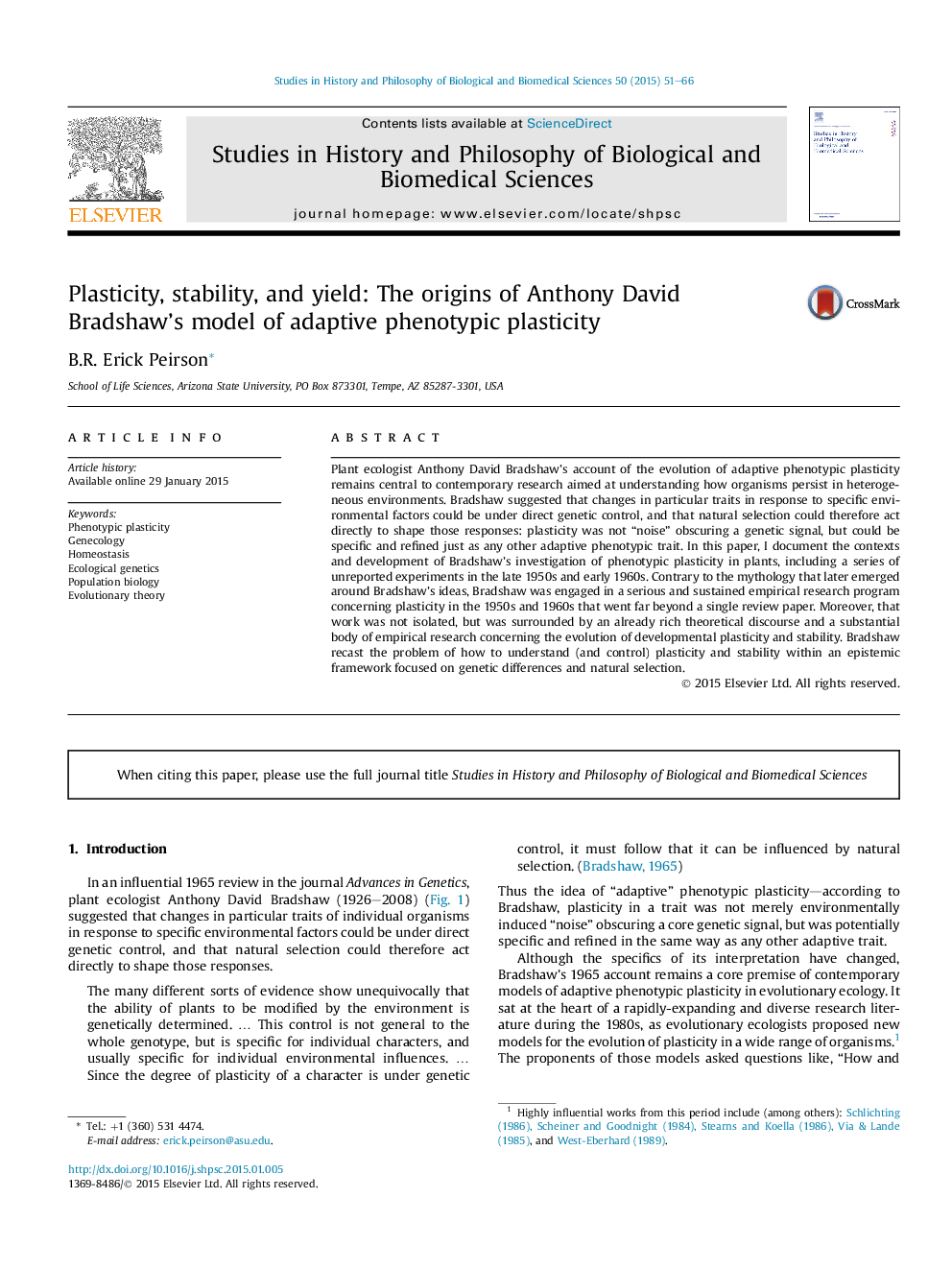| Article ID | Journal | Published Year | Pages | File Type |
|---|---|---|---|---|
| 1161167 | Studies in History and Philosophy of Science Part C: Studies in History and Philosophy of Biological and Biomedical Sciences | 2015 | 16 Pages |
•I document A. D. Bradshaw's research concerning adaptive phenotypic plasticity.•Bradshaw conducted a serious and sustained empirical research program on plasticity.•His work built on an extant discourse about developmental plasticity and stability.•Bradshaw recast that discourse in the genecological research tradition.
Plant ecologist Anthony David Bradshaw's account of the evolution of adaptive phenotypic plasticity remains central to contemporary research aimed at understanding how organisms persist in heterogeneous environments. Bradshaw suggested that changes in particular traits in response to specific environmental factors could be under direct genetic control, and that natural selection could therefore act directly to shape those responses: plasticity was not “noise” obscuring a genetic signal, but could be specific and refined just as any other adaptive phenotypic trait. In this paper, I document the contexts and development of Bradshaw's investigation of phenotypic plasticity in plants, including a series of unreported experiments in the late 1950s and early 1960s. Contrary to the mythology that later emerged around Bradshaw's ideas, Bradshaw was engaged in a serious and sustained empirical research program concerning plasticity in the 1950s and 1960s that went far beyond a single review paper. Moreover, that work was not isolated, but was surrounded by an already rich theoretical discourse and a substantial body of empirical research concerning the evolution of developmental plasticity and stability. Bradshaw recast the problem of how to understand (and control) plasticity and stability within an epistemic framework focused on genetic differences and natural selection.
